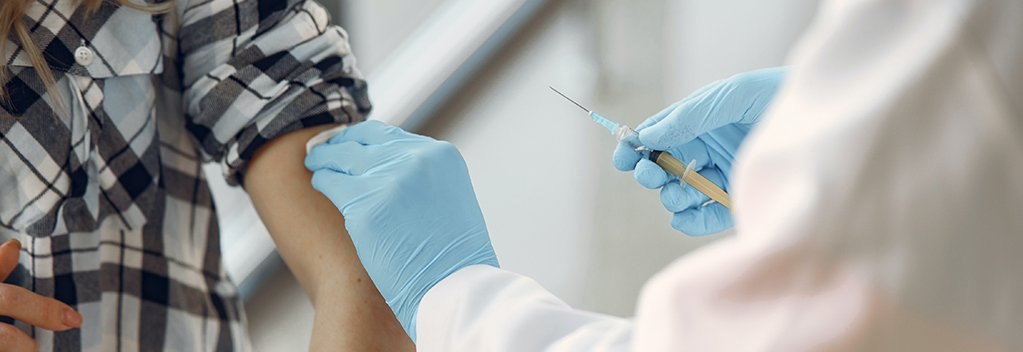Americans live in their own COVID-19 vaccination bubbles. As the number of the vaccinated moves slowly upwards, those who reject or are dubious about becoming vaccinated in the latest Economist/YouGov poll have fewer friends and family members to guide them toward the injections.
Just about half of all adults (49%) say that all or most of their friends have received the coronavirus injections. That rises to three in four of those who are fully vaccinated (74%). But among those who are resistant to receiving the vaccine, a majority have either few (45%) or no (8%) friends who have been vaccinated. In addition, more than a third of those who aren’t sure whether they will be vaccinated (37%) say they simply don’t know the vaccination status of those close to them.
There are similar trends for the family members of the vaccinated and unvaccinated. Two-thirds of Americans who do not plan to get vaccinated say either few (39%) or none (28%) of their vaccine-eligible family members have gotten the shot. Likewise, most adults who are not sure about getting vaccinated say that few (37%) or none (17%) of their family members got vaccinated. On the other hand, four in five fully vaccinated adults say all (43%) or most (35%) of their family members are vaccinated.
That doesn’t mean the vaccine hesitant haven’t been encouraged to become vaccinated.
Half of those who say they won’t be vaccinated (50%) say someone has encouraged them to get the jab. But that’s fewer than the 63% overall who say someone has encouraged them. Only one-third overall (32%) have been actively warned against getting the vaccine, with 37% of those who will not get a vaccine and one-quarter (23%) of the vaccine hesitant saying they have been warned against getting the shot.
Those who will not get vaccinated say a bad reaction to the shot outweighs COVID-19
But what may be holding some people back is the fear of a bad reaction. Those who have been fully vaccinated overwhelmingly believe that contracting COVID-19 (80%) would be significantly worse than a bad reaction to the shot (29%). But nine in ten of those who do not plan to be vaccinated (89%) say a bad reaction is a worse outcome.
All but the fully vaccinated express some concern about the possibility of side effects. But the vaccine hesitant may have another reason to fear the impact of the vaccine itself more than COVID-19. Nearly three in four of those who say they won’t be vaccinated (and nearly six in ten of those who aren’t sure they will) have little or no concern about personally contracting COVID-19. For many of them, the possibility of a negative vaccine reaction would be more concerning than a virus they believe they don’t have to worry about.
How prevalent are the vaccine side effects? One in four of those who have been vaccinated (23%) say they did experience a reaction to the vaccine. But for nearly three-quarters of vaccinated adults (73%), the reactions were not severe and lasted only a day or so. But a few did suffer for a longer time or had more intense reactions.
Still, eight in ten of those who did have a reaction (79%) said that the possibility of contracting COVID-19 was a worse outcome than having a bad reaction to the vaccine (21%).
Vaccinated parents plan to vaccinate their children
A parent’s own vaccination status has an impact on whether their children have been (or will be) vaccinated. Parents of children 12 and older (59%) are much like the public overall (52%) when it comes to being fully or partially vaccinated. Among those who are vaccinated or in the process of becoming vaccinated, nearly nine in ten (89%) say they will have (or have had) their 12-to 17-year-old children vaccinated.
But nine in ten of those who won’t be vaccinated themselves or aren’t sure (90%) are on the fence about vaccinating their children (45%) or say they won’t permit their vaccination (45%).
As for the parents of children under the age of 12, less than half (46%) have had both shots or only one shot themselves. Fewer than half of all parents of children under 12 (46%) now say they will have their children under 12 vaccinated when the time comes, while nearly a third say they will not (30%).
See the toplines and crosstabs from this week’s Economist/YouGov poll
Methodology: The Economist survey was conducted by YouGov using a nationally representative sample of 1,500 US Adult Citizens interviewed online between May 22 - 25, 2021. This sample was weighted according to gender, age, race, and education based on the American Community Survey, conducted by the US Bureau of the Census, as well as 2016 Presidential vote, registration status, geographic region, and news interest. Respondents were selected from YouGov’s opt-in panel to be representative of all US citizens. The margin of error is approximately 2.9% for the overall sample.
Image: Getty








